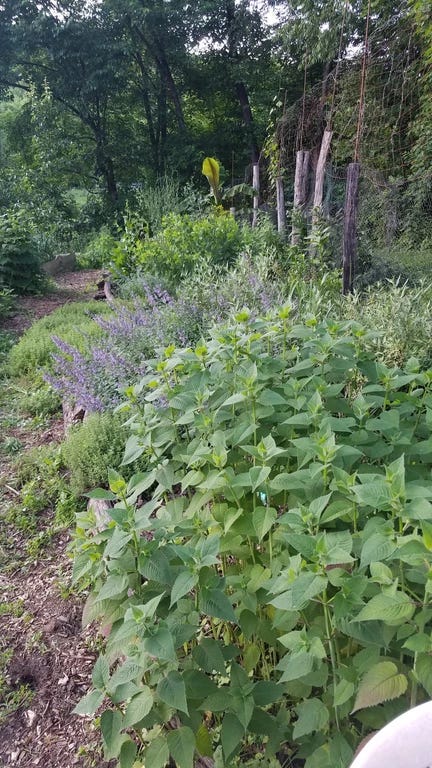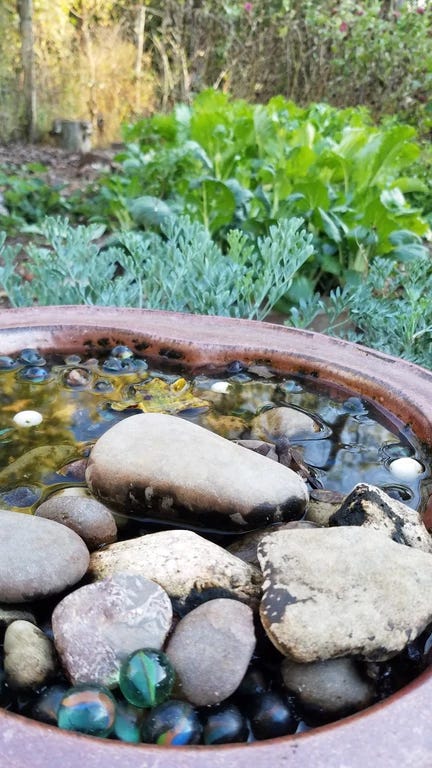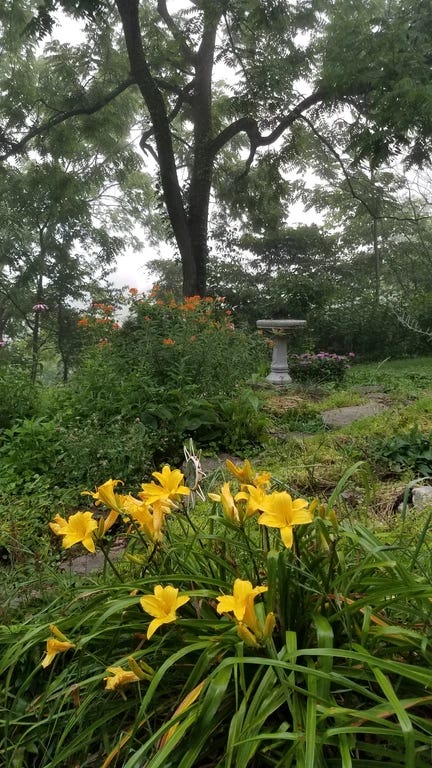Science, soil, headlines, and random photos
I have something of an obsession with soil. To give you a idea of what I mean, if someone asks me if I like Jethro Tull, I look forward to a discussion of till versus no-till, until I'm informed that the questioner means the band, not the agronomist. I recently felt my grasp of key soil concepts was slipping, so I decided to do some reading on soil, and came across this extraordinary statement: "The more organic matter your soil has, the lower its pH will be." If this was true, then after almost 2 decades of adding tons of wood chips, composted manures, and leaves, my garden would have the acidity of a Superfund site. This is obviously not the case.
This claim of organic matter leading to acid soil was part of what seemed to me to be an otherwise astute analysis of soil chemistry, so I decided to dive deep into this rabbit hole (excavated in sandy loam) to find out what others had to say. This bad decision was probably brought on due to lack of light addling my brain in this darkest time of year. The best answer I could find to the question "does organic matter make soil acidic," was "it depends."
It depends on the nature of the soil and organic materials you start with. It depends on rainfall and temperature. It depends on whether you mean in the short term or long term. And many other things too sciencey to list (plus I swore off lists.) That's the problem with science. We look to researchers for answers and find that the answers are never the pithy chunks of truth that we are looking for.
A typical researcher might investigate the short term effects of hog manure application on degraded soils in Lahore, Pakistan. The results are specific to this particular study. Science breaks down the world into tiny bits to study. The cumulative results of research gradually build the big picture of how the world works. The problems begin when results from a single study get filtered through the media, and distilled into a simple inflammatory headline.
Before asking simple questions and expecting simple answers, we non-scientists should learn the basics of the language of scientific research. This is especially important in today's world of conflicting headlines that often lead to opposing sides of an issue claiming victory because "science just proved that it's true!"
Science doesn't prove anything. Proof is for the courtroom and truth is for poems by Keats and the novels of P.D. James. Science finds evidence to support hypotheses. After much research we get theories. I know we all learned this in grade school science class, but has it helped us decipher the meaning of headlines regarding scientific research?
Consider these possible headlines regarding research into the connection between soil organic matter and pH.
"Research shows adding organic matter to your garden raises soil pH"
"Research shows adding organic matter to your garden lowers soil pH"
"Research show adding organic matter to your garden has no affect on soil pH "
On the face of it, the headlines seem to be contradictory, yet they could all be perfectly accurate summaries of the research in each case. Without knowing critical details of each experiment, such as the initial pH of the soil, the results are meaningless, and we can't learn anything substantive from the headlines.
Back to my initial concern: the affect of all that organic matter I've added to my garden soil over the years. I was taught that components of organic matter act as buffers, bringing soil pH gradually closer to neutral. Does it really work that way? I can't say for sure. What I've read suggests that organic matter doesn't affect soil pH very much, but can alter buffer pH greatly. This means that if you attempt to change your soil pH (usually this means adding lime to raise it) you're going to have to add a lot more.
So is this good, bad, or neutral? (get it?) After diving deep, and clambering back out of that damn rabbit hole, I can only say, it depends. My general conclusion is that the best way to proceed is to observe your garden closely. The benefits of soil organic matter are so great for other reasons (provides nutrients, improves drainage, improves moisture retention, feeds microfauna, etc) that you should keep adding it. The garden is not a laboratory or a controlled experiment. It is an ecosystem with countless ungovernable factors affecting innumerable agents. And that is a good thing.
For those interested in learning more about how headlines are manipulative,
check this out.





